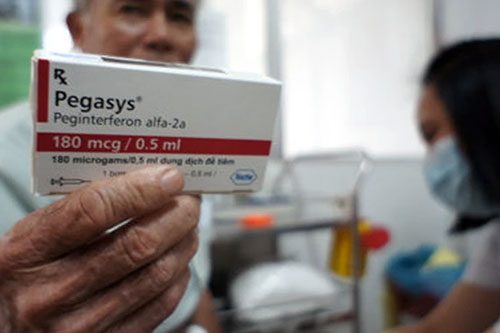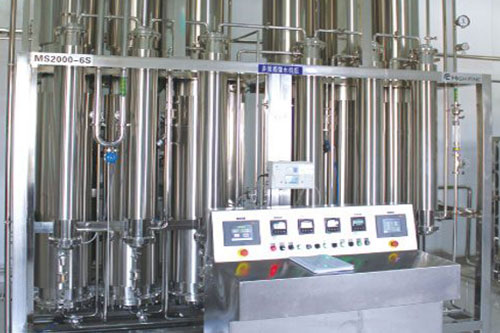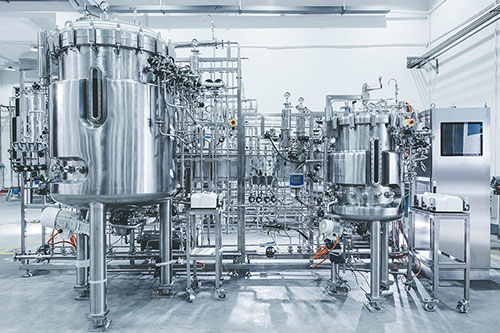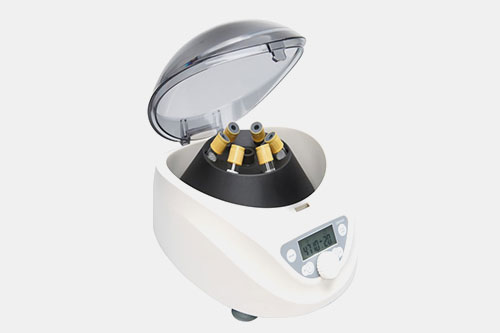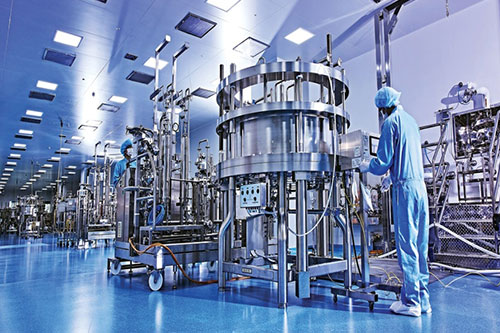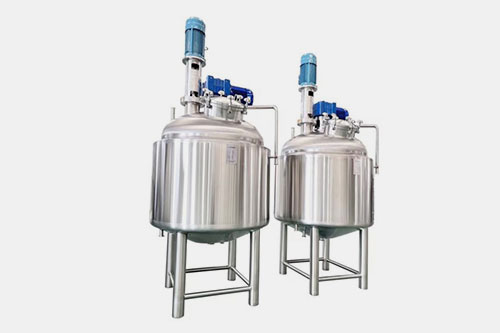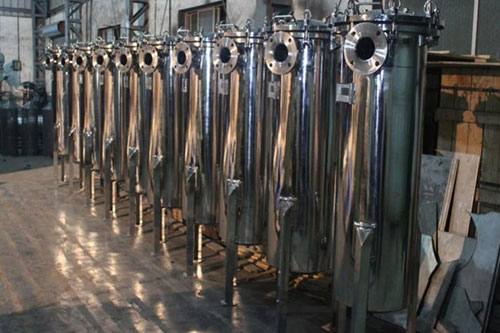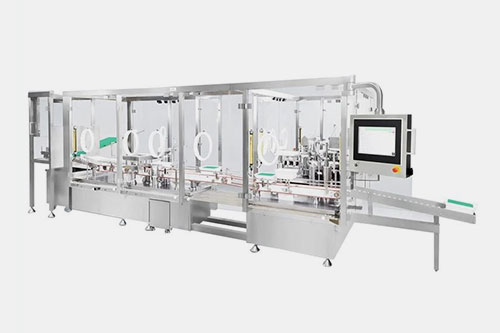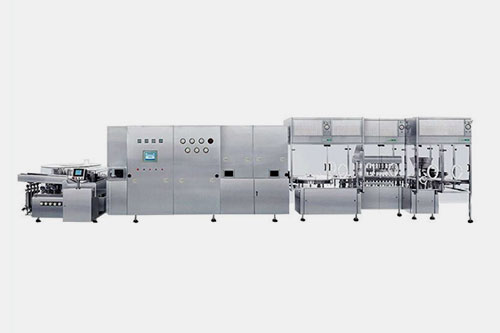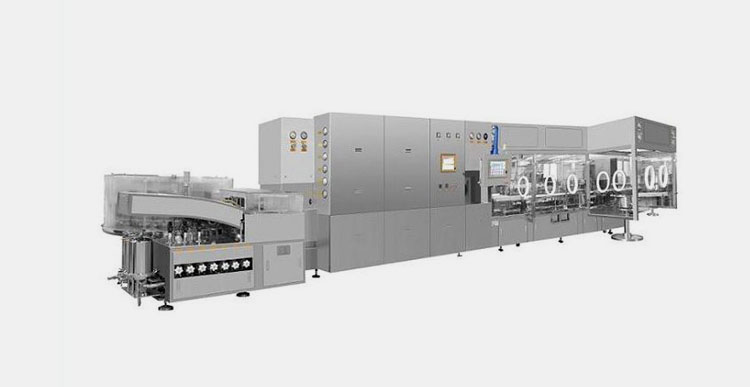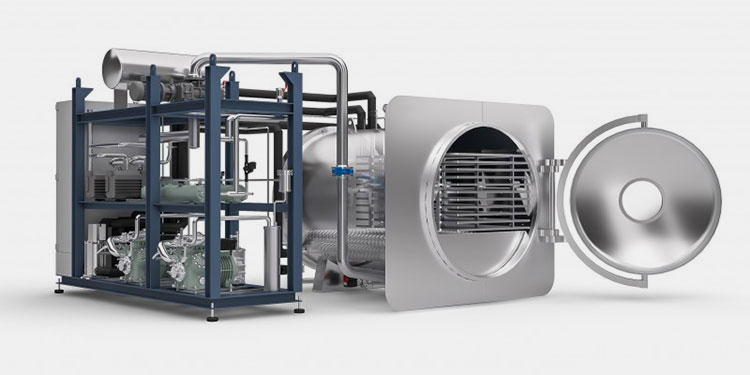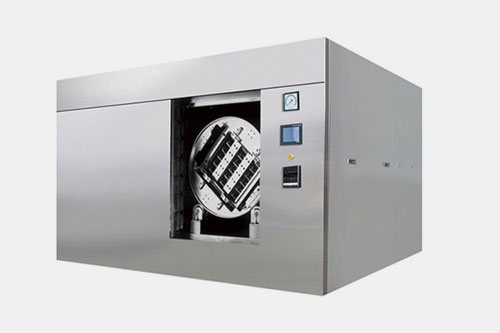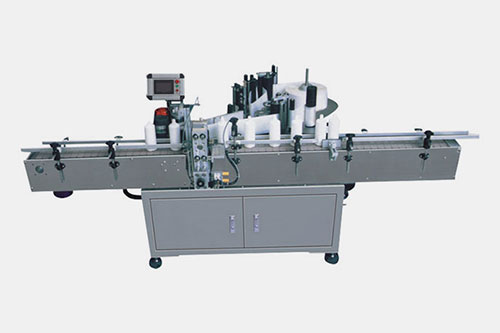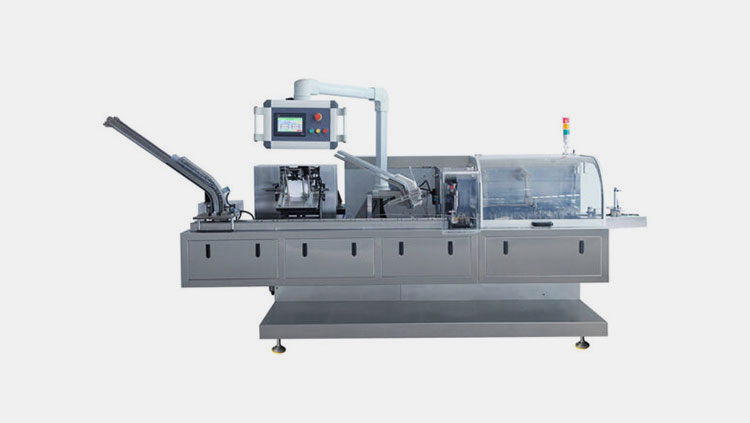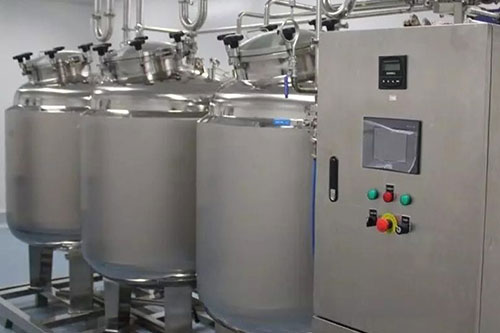Interferon Therapy For Hepatitis C: The Complete FAQ Guide In 2025
Are you familiar with the interferon therapy for hepatitis c? Interferons are basically proteins that have role in mimicking the immune system. They have been using for the treatment of several diseases but here you get the absolute knowledge about their purpose in treating hepatitis c.
You are going to comprehend working mechanism, types, combination therapy, benefits, route of administration, production, limitation, alternative therapies and precautions about interferon therapy for hepatitis c.
1.What is interferon therapy for hepatitis c?
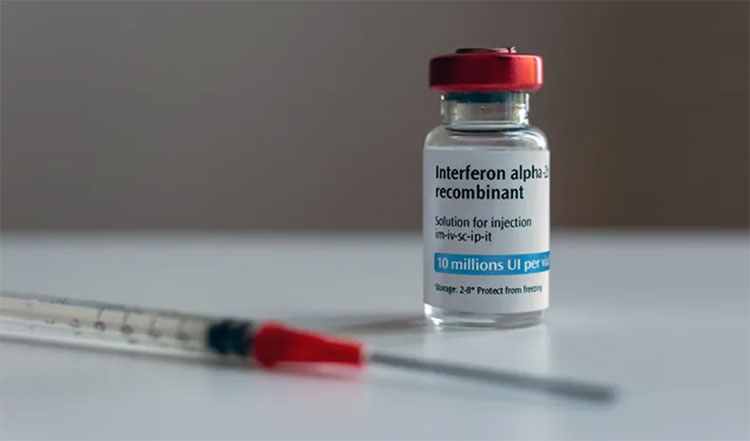
Interferon Therapy For Hepatitis C-Picture Courtesy: Halodoc
Do you know interferons can be made by your own body? Yes, interferons are the naturally occurring proteins that are produced by body. You can count them as a natural virus fighter signal of your body. Have you wondered why there is any need to give interferon artificially?
When hepatitis c virus invades your body, immune system activates but it is not strong enough to fight back the virus. In this way, disease starts progressing in the body. To correct this situation, you introduce interferons from outside, that take part in fortifying your immune system. That is the conventional method to combat with hepatitis c, which you called as interferon therapy for hepatitis c.
2.Do you know the mechanism by which interferon therapy for hepatitis c works?
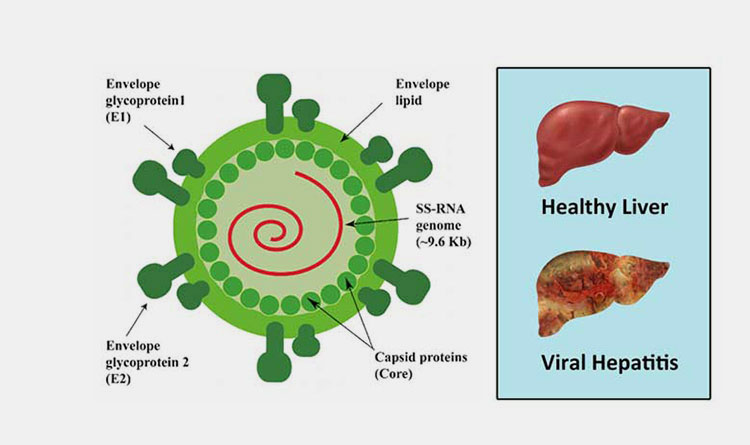
Hepatitis C Virus-Picture Courtesy: Microbe Notes
The idea behind the working mechanism of interferon therapy for hepatitis c is same as the naturally occurring interferons. The action begins as you introduce the artificial interferons in the body. These interferons detect the presence of hepatitis c virus in your body.
As interferons find virus invasion, they warn cells about the virus, alert the immune system to make antibodies against them and limit the multiplication of virus in your body.
3.What can be the types of interferon therapy for hepatitis c?
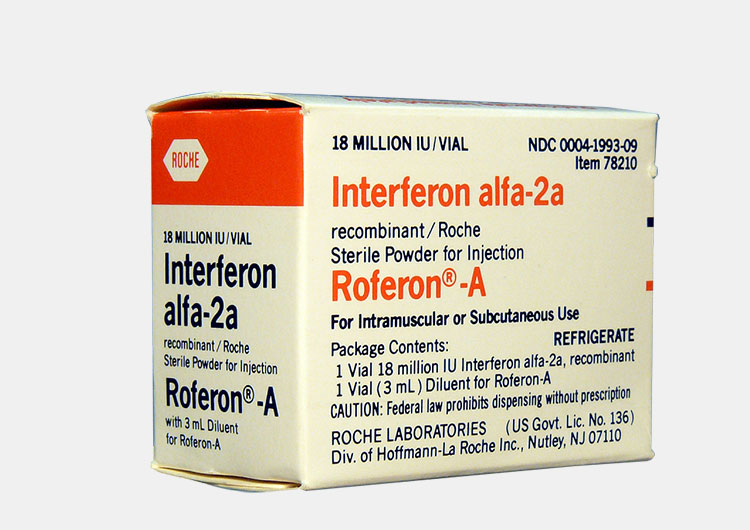
Interferon Alpha Is Used For The Treatment Of Hepatitis C-Picture Courtesy: National Museum Of American History
When you talk about natural interferons, they can be divided into three types like interferon alpha (α), interferon beta (β) and interferon gamma (γ). But interferon alpha is used for the therapy for hepatitis c and it can be available in two types.
Standard interferon alpha: you can find it short acting, so frequency of administration is more as compared to other one. This interferon needs to be combined with other drug to enhance its effects. You may experience side effects due to changes of drug amount in the blood.
PEGylated interferon alpha: you can consider this interferon as altered one because changes have made to make it long acting. PEG (polyethylene glycol) is incorporated in it to make it stay more in body. This initiative has more benefits and no harm like you can administer less doses and experience less side effects. If you want increase cure rates, combine it with other drug.
PEGylated interferon alpha also come in two different types that you can know as alpha 2a and alpha 2b. You can observe that PEGylated interferon alpha is used widely for managing hepatitis c due to dominant effects and fewer side effects.
4.What is the drug used to combine with interferon therapy for hepatitis c?
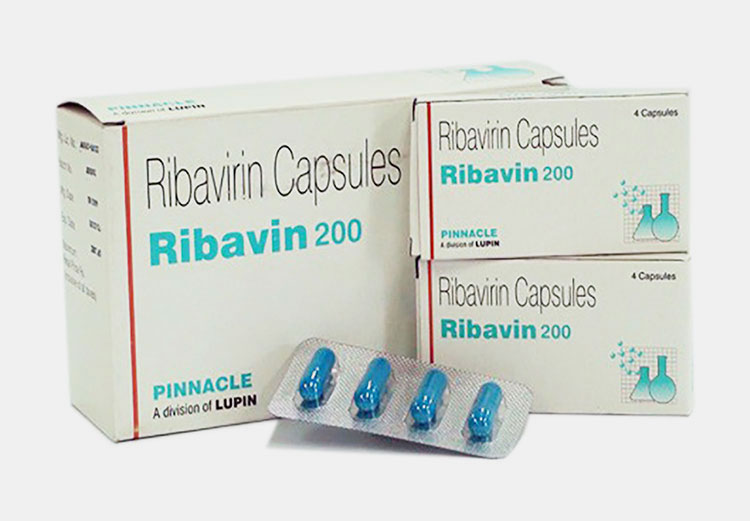
Ribavirin Is Combined With Interferon Therapy For Hepatitis C
Are you curious to know about the drug that is combined with interferon therapy for hepatitis c? A well-known virus fighting agent ribavirin is used to support the effects of interferon against hepatitis virus. Ribavirin is given by oral route and has ability to limit the growth and viability of virus, but it works in different ways.
Ribavirin can stop the RNA synthesis of virus or can cause mutations in viral genes. You can also find its role in mimicking the immune system, along with the minimization in substances that can inhibit interferon’s effects and are naturally present in your body. With so many privileges, ribavirin is a good choice to be combined with interferon therapy for hepatitis c.
5.Are you aware of the benefits of interferon therapy for hepatitis c?
Interferon therapy for hepatitis c proves to be a fruitful treatment and offers you so many benefits. Here you recall all the privileges that you can acquire by choosing interferon therapy as your targeted therapy against hepatitis c virus.
Uplifting the immune system:

Uplifting The Immune System-Picture Courtesy: Prime Infusions
Interferon therapy for hepatitis c alerts your immune system about the virus presence. It also helps to attain sustain virologic response (SVR). Do you know what is it? It indicates the absence of virus in the blood after treatment and this is declared as cure from viral disease.
Protecting liver from destruction:

Protecting Liver From Destruction-Picture Courtesy: Hepatitis Central
As you learnt that interferon therapy for hepatitis c can limit the viral function in your body. This feature helps to protect the liver from further destruction. An infected liver can lead to untreatable conditions like liver cancer, liver cirrhosis or liver failure. Effective treatment by interferons prevents serious consequences.
Presenting long term effects:

Treatment Makes You Live A Better Life-Picture Courtesy: Health
You have often seen patient get cured by giving interferons and start living a better life with less complications and good quality. This reflects the long term effects of interferon therapy for hepatitis c.
Using as the only treatment:

Interferon Therapy Was The Only Treatment For Hepatitis Before 2014-Picture Courtesy: The Lancet
Do you know interferon therapy for hepatitis c was using as the only treatment before 2014? Yes it was given with ribavirin to manage this viral disease. This was the only way to cure people from falling into serious consequences.
6.What dose and route of administration is preferred for interferon therapy for hepatitis c?
It is necessary for you to know the right amount of drug you have to introduce in the body and also in a right way.
Dose of interferon therapy:
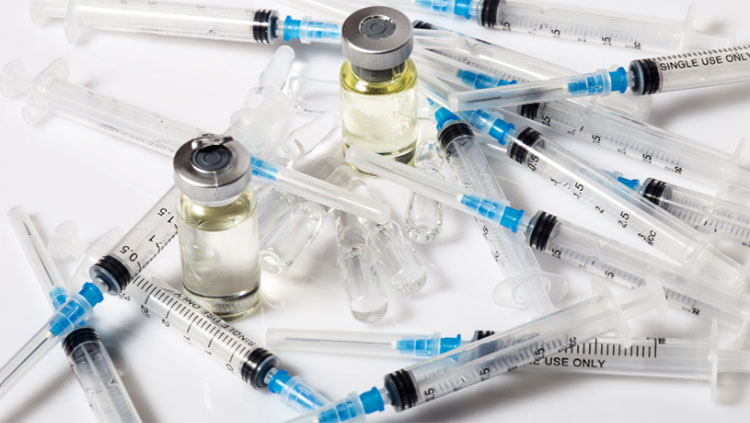
Dose Of Interferon Therapy For Hepatitis C-Picture Courtesy: Health Affairs
As you have learnt it before that interferon therapy can be of two types. First is standard interferon alpha, which can be given about 3 million units (MU). As it is short acting, you have to administer it three times in a week. It can be continued to administer almost 24 to 48 weeks with a ribavirin (oral) daily.
Other is PEGylated interferon alpha; it is available in two forms that are PEGylated interferon alpha 2a and PEGylated interferon alpha 2b. You can give alpha 2a as 180 micrograms and alpha 2b 1.5 micrograms per kg one time in a week. This type of interferon is used widely due to being long acting and it takes 48 weeks to complete the therapy. It is necessary to administer ribavirin by oral route once daily.
Route of administration:
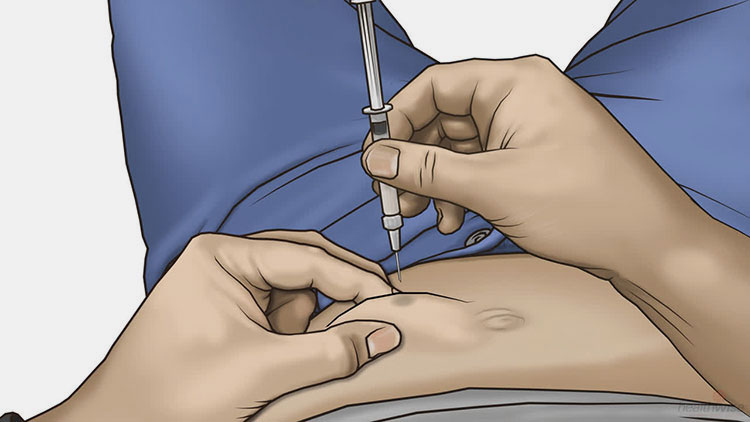
Interferon Therapy For Hepatitis C Can Be Given By Subcutaneous Route-Picture Courtesy: NewYork-Presbyterian
You can see interferon therapy for hepatitis c is administered by the help of injection. The route chosen for this purpose is subcutaneous (SC), which means beneath the skin. You can give it in upper arm or thigh or even in the belly, is that not convenient?
7.What is the packaging container used for interferon therapy for hepatitis c?
Do you admit the value of packaging container? It holds an important role in keeping the drug safe and sterile and also provides convenience in administration. Let’s discuss which packaging container is good for interferon therapy for hepatitis c!
Prefilled syringes:
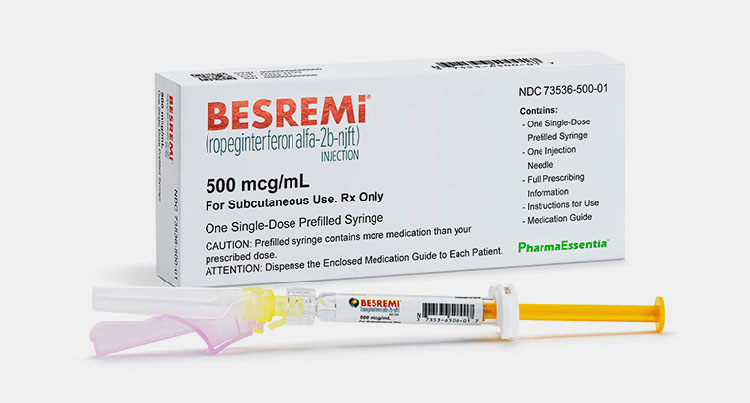
Interferon Alpha 2b Is Packaged In Pre-Filled Syringes
You often see that interferon is packaged in prefilled syringes, but do you know why? This packaging container comes with numerous benefits. It keeps the drug safe, sterile and potent and also offers high accuracy in administration single precise dose of drug. You can find prepared formulation packaged in prefilled syringes, which are ready to consume or sometimes it has to be reconstituted.
Vials:
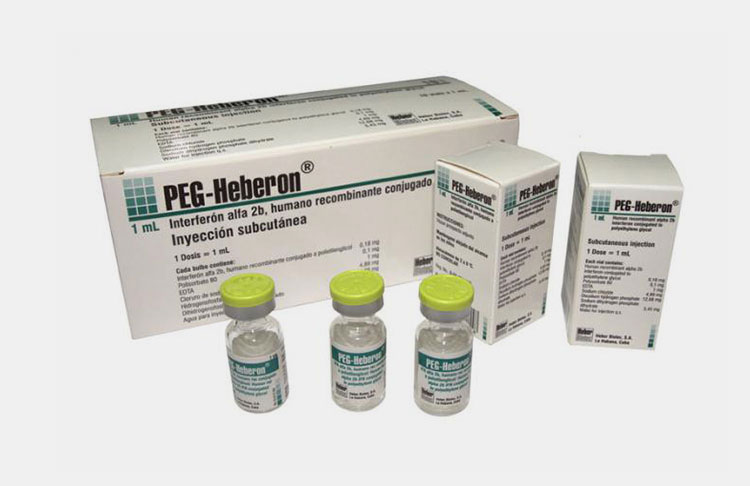
Interferon Alpha 2b Packaged In Vials
You can also find interferon being packaged in single dose vials and it has its own reasons. Vials present a suitable way to store and keep the formulation sterile and potent. They either carried liquid formulation which is ready to use or powder formulation which requires reconstitution. Vials have the capability to retain the efficacy of drug, no matter which form in filled liquid or powder.
8.Why interferon therapy for hepatitis c is packaged in both liquid and powder forms?
You can often observe that interferon therapy is available in liquid and powder both forms. Have you thought why both forms are packaged? Your answer is described in this topic by comparing both forms.
| Factors | Interferon in liquid form | Interferon in powder form |
| Storage:
|
You may experience that liquid formulation is sensitive to store in normal conditions. It demands specific conditions and more importantly refrigeration for being functional. Liquid interferon is also found less stable and holds more chances to develop microbial contamination. | You often find that lyophilized powder form does not demand for refrigeration but other factors have to be kept favorable. It is regarded as the stable form and suitable for storage or distribution for longer time. |
| Administration:
|
You can feel convenience in administering liquid form, as dose in already prepared and filled in packaging container. You just have to administer it. You can use it even staying at home, no need to go to hospital for every administration. | Although it is the stable one but it requires trained personnel to administer the right dose. It has to be reconstituted with sterile vehicle before administration. It is more common is hospital settings. |
9.Can you describe the manufacturing process of interferon therapy for hepatitis c?
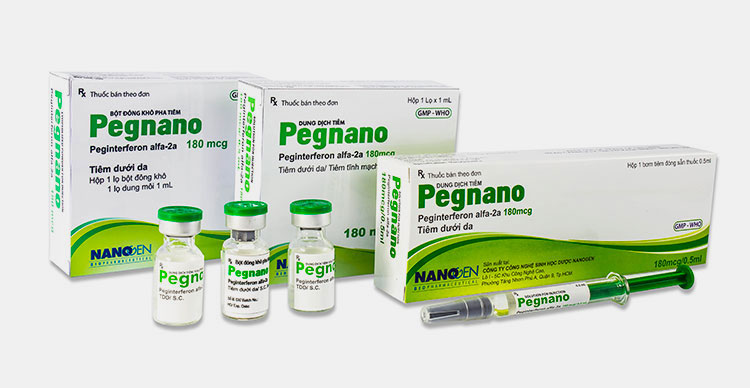
Manufacturing Process Of Interferon Alpha
Now days, you have sensed that PEGylated interferon is used widely, due to offering more benefits and few side effects. Here you will get to know the manufacturing process of PEGylated interferon alpha. It demands many important steps for manufacturing and all steps must be GMP- compliant. Aseptic conditions have to be maintained in overall production by utilizing different means.
| Steps of manufacturing | Information |
| Cloning & fermentation: | For cloning, first you are required to select the genes that are capable to form human origin interferon alpha.
After identification, you move forward to place the gene in to vector plasmid. It is a kind of DNA molecule that helps you in multiplying gene. After that you can place the plasmid vector in host cells, where it gets multiplied after giving favorable conditions. E coli bacteria or mammalian cells can be used as host cells. Now you require bioreactors, where fermentation process takes place. Cell culture is placed over there and conditions are set to facilitate the growth of host cells. |
| Purification: | After many days, you can be able to get interferon, which is produced in host cells.
Next step is to acquire that interferon alpha from host cells. For this you initiate the process of lysis of host cells so that interferon can be released. You have to separate interferon from cell components by applying purification methods. Chromatography can be the method to get pure form of interferon. |
| PEGylation:
|
You initiate a chemical reaction between interferon alpha and polyethylene glycol (PEG) to complete the process of PEGylation. Now you get the PEGylated interferon alpha. PEGylation is done to stabilize the interferon alpha. |
| Formulation: | PEGylated interferon is mixed with suitable buffer and sterile water for injection for formulating liquid preparation. |
| Filtration: | You are needed to filter the formulation before moving towards the process of filling and sealing. Inline filtration system helps you to remove the un-wanted particles and microbes from the formulation. |
| Filling and packaging: | For prefilled syringes, the process you need to follow is told below:
At first, outer covering of syringe is removed which you can say as the process of unpacking. Then tearing process starts to prepare syringe for filling process. This can be done by removing the protective film of syringe. After tearing, syringes are placed in honey comb tray to be moved towards filling station. Conveyors support this transfer. At filling station, syringes are filled with precise dose. After filling, syringes are moved towards plugging station. Here you perform the sealing process to avoid contamination. In order to fill and seal vials, you must load vials in the vial filling line. Here vials are washed and the sterilized. After that by the help of conveyor, sterilized vials are moved to filling unit, where accurate amount of drug is filled in vials. These filled vials are then subjected for sealing in sealing unit. Aluminum caps are used to seal the vials. |
| Lyophilization: | When you want the powder form of interferon alpha. You perform the process of lyophilization. The process starts with freezing of liquid solution, then applying specific pressure on it. Due to pressure, water content is removed and you obtain freeze-dried powder. |
| Sterilization: | The filled and sealed containers are sterilized to eliminate the expected pyrogens or other microbes from formulation. |
| Quality control: | After sterilization, you are demanded to perform few tests to inspect the quality of your product.
Sterility, pH, microbial presence, stability, potency, etc. can be tested by using suitable methods. |
| Labeling & packaging: | After carrying out the inspection of quality, you put the prefilled syringes for secondary packaging. These prefilled syringes are arranged in a tray and then packaged in a box. On the other hand, vials are first labeled by using printed labels. These labels contain important information like product name, volume, administration route, expiry, batch no etc. After labeling, you can subject vials for packaging in a box. |
| Storage: | Interferon is required to store in suitable storage conditions to avoid any damage to drug. Refrigeration is requisite for storage, until and unless manufacturer allows you to store the product at room temperature. |
10.What equipment is utilized in manufacturing of interferon therapy for hepatitis c?
It becomes imperative to know the equipment utilized during manufacturing of interferon therapy for hepatitis c, in order to understand the production process completely. Let’s read the brief discussion on equipment!
| Equipment | Information |
| Clean room
|
Clean room is the area that has controlled environment and suitable for manufacturing pharmaceutical products.
It helps you to perform every step of manufacturing of interferon in aseptic conditions. HVAC system is installed in clean rooms, which filters air to avoid contamination. Temperature and humidity are also kept in range. |
| Water treatment system
AIPAK Water Treatment System |
Water for injection is obtained by treating water by water treatment system.
Different methods are applied by this equipment to get the high quality sterile water for injection. Methods that are involved are distillation, reverse osmosis, and ultrafiltration. |
| Bioreactor
|
Bioreactor is a vessel like equipment that helps you to carry out the fermentation process. It has ability to maintain temperature and other factors according to process requirement. |
| Centrifuge
|
Centrifuge helps you to isolate the interferon alpha from the cell components. |
| Chromatography columns
|
Chromatography columns are employed to perform the process of chromatography. In this way you are able to get pure form of interferon alpha. |
| Jacketed mixing vessel
|
Jacketed mixing vessel aids you to carry out the mixing process of ingredients like PEGylated interferon, buffer and sterile water for injection. |
| Inline filtration system
|
Inline filtration system has porous material in it that allows only uncontaminated formulation from it. Particles and microorganisms are retained in pores. |
| Prefilled syringe production line
AIPAK Prefilled Syringe Production Line |
Prefilled syringe production line is an automated machine, used to fill and seal the interferon in prefilled syringes. It has important parts that include unpacking and tearing unit, conveyors, filling unit and plugging unit. |
| Vial filling line for liquid
AIPAK Vial Filling Line For Liquid |
Vial filling line for liquids works automatically to fill and seal the interferon in vials. It has four parts that are involved in whole operation. These parts are washing unit, sterilization unit, filling unit and sealing unit. |
| Vial filling line for lyophilized powder
AIPAK Vial Filling Line For Lyophilized Powder |
Vial filling line for lyophilized powder is an automated machine and carries out the process of filling and sealing powder form of interferon in vials. It also has important parts that are washing station, sterilizing station, filling station and sealing station. |
| Lyophilizer
|
Lyophilizer is employed to perform the lyophilization process of liquid formulation of interferon alpha. Lyophilization is done to get powder form which remains stable more as compared top liquid formulation. |
| Autoclave
|
Autoclave is used to kill the microbes present in formulation. It uses steam to continue the process of sterilization. |
| Labeling machine
AIPAK Labeling Machine |
Labeling machine takes part in applying printed labels on vials. These labels are adhered to the vials by using different adhesive methods. |
| Cartoning machine
AIPAK Cartoning Machine |
Cartoning machine is utilized in packing vials and prefilled syringes in boxes with leaflet and sterile solvent for reconstitution if required. |
| CIP system
AIPAK CIP System |
Clean-in-place system is used to clean the equipment without moving them from their places or dissembling them. |
11.Do you know the important consideration of interferon therapy for hepatitis c?
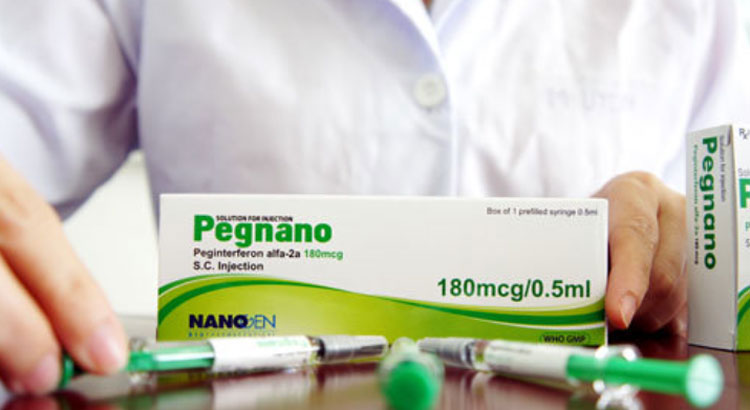
Important Considerations Of Interferon Therapy For Hepatitis C
| Important considerations | Information |
| Storage | You must remember that interferon alpha is likely to store in refrigerator, keeping temperature 2-8 ̊C.
You must not remove the original packaging and avoid light exposure as it can cause degradation in product. You must avoid shaking of the formulation, as it can cause damage to interferon alpha. It is a delicate protein and harmed by this act. |
| Shelf life | You must know that sealed product of interferon can be used within 1.5 to 2 years of manufacturing when refrigerated.
Reconstituted or opened formulation must be used in a day when stored in 2-8̊C. |
| Treatment duration | You have to continue the treatment till the treatment duration gets completed. You learnt it before that PEGylated interferon alpha is given once a week for 48 weeks and ribavirin is also given orally on daily basis. |
| Genotype | You have to keep this in mind that interferon therapy manifests good effects for some genotypes like 2 or 3 but it shows slow effects for genotype 1. |
| Administration route | Subcutaneous route is the right way of administer dose of interferon therapy for hepatitis C. You must remember that patient should be counselled well about proper way of administration dose in case of self-administration. |
| Unwanted effects | Interferon therapy for hepatitis c can be responsible for serious unwanted effects, that could be
Symptoms resembling flu with fever, cold and fatigue Depression or mood alterations Thinning of hair Anemia You need to resolve these side effects on early basis. |
| Proper monitoring | You have to carry out blood tests to check the liver function, blood cell counts and viral load to figure out the progress of therapy. |
| Use in pregnancy | You should know that interferon and ribavirin must not use by men and women both. These are teratogenic, can harm fetus. No use in pregnancy is encouraged and pregnancy must be avoided during whole treatment span. |
12.What can be the limitations of interferon therapy for hepatitis c?
Interferon therapy for hepatitis c does have limitations, which must be known by you. This topic provides you guidance about these limitations.
Low cure rates:

Low Cure Rates-Picture Courtesy: Health Cleveland Clinic
You may observe that sometimes interferon therapy for hepatitis c does not respond effectively and you get the low cure rates. Mostly genotype is the reason behind the ineffectiveness of the therapy. People with advanced liver damage or AIDS do not get recovered by this therapy.
Serious side effects:

Interferon Therapy Can Cause Serious Side Effects Like Neuropsychiatric Issues
You read it before that interferon therapy for hepatitis c can cause serious side effects like mental issues, anemia, weak immunity etc. It could be the reason that people quit the treatment process.
Long duration of therapy:
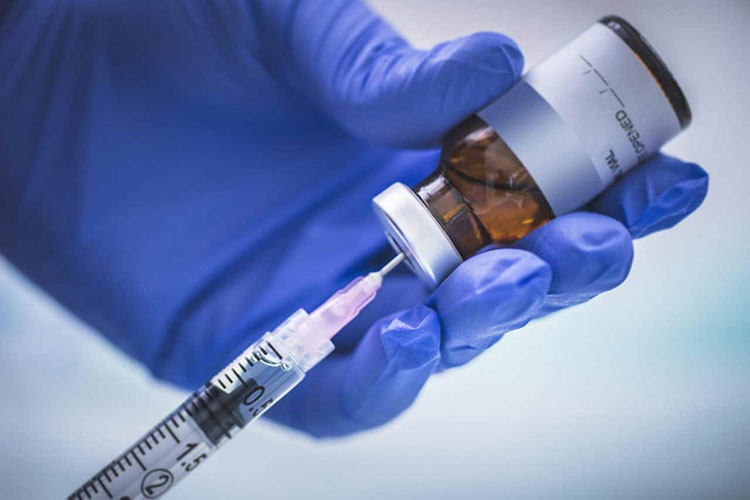
Long Duration Of Therapy
You know it well that duration of treatment is so long and some reports have shown that relapse had occurred even after completing the treatment. These issues can make the interferon therapy reconsiderable.
Contraindications:

Interferon Therapy Has Some Contraindications & Pregnancy Is One Of Them
You cannot take interferon therapy for hepatitis c in advanced liver disease, pregnancy, autoimmune disease, or severe psychiatric issues. These contraindications can limit the therapy use.
13.What are alternative therapies used against interferon therapy for hepatitis c?
This topic tells you about alternate therapies used against interferon therapy for hepatitis c:
Direct acting antivirals (DAAs):
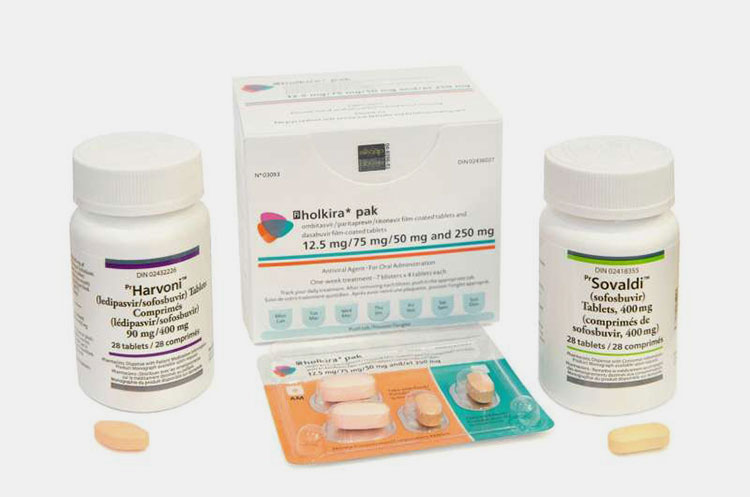
Direct Acting Antivirals
Have you heard about DAAs? These are now considered as standard treatment for hepatitis c. Direct acting antivirals attack the virus directly and destroy its life cycle. These drugs benefit you in many ways. These are far more effective than interferon and also come with fewer side effects. These are taken by oral route, once in a day and treatment duration is also less.
Examples are sofosbuvir, ledapasvir, velpatasvir etc.
Liver transplant:

Liver Transplant-Picture Courtesy: NHS Blood And Transplant
When hepatitis c enters advanced stage, treatment are failed to cure it. You have to perform liver transplant. These DAAs are used before and after the transplant to deal with the viral infection.
Conclusion:
Interferon therapy for hepatitis c helps to boost the body’s immune system against the viral infection. It offers many benefits, yet it possesses limitations. It is produced under GMP-compliant guidance and required to be stored properly. Due to limitations, other choices of treatment prefer now days. If you are looking for more sterling knowledge related to interferon therapy for hepatitis c, you can contact AIPAK ENGINEERING at any time!
Don't forget to share this post!
CONTACT US
Tell us your raw material and project budget to get quotations within 24 hours.
WhatsApp Us: +86 181 7101 8586
 Tell us your material or budget, we'll reply you ASAP within 24 hours
Tell us your material or budget, we'll reply you ASAP within 24 hours

